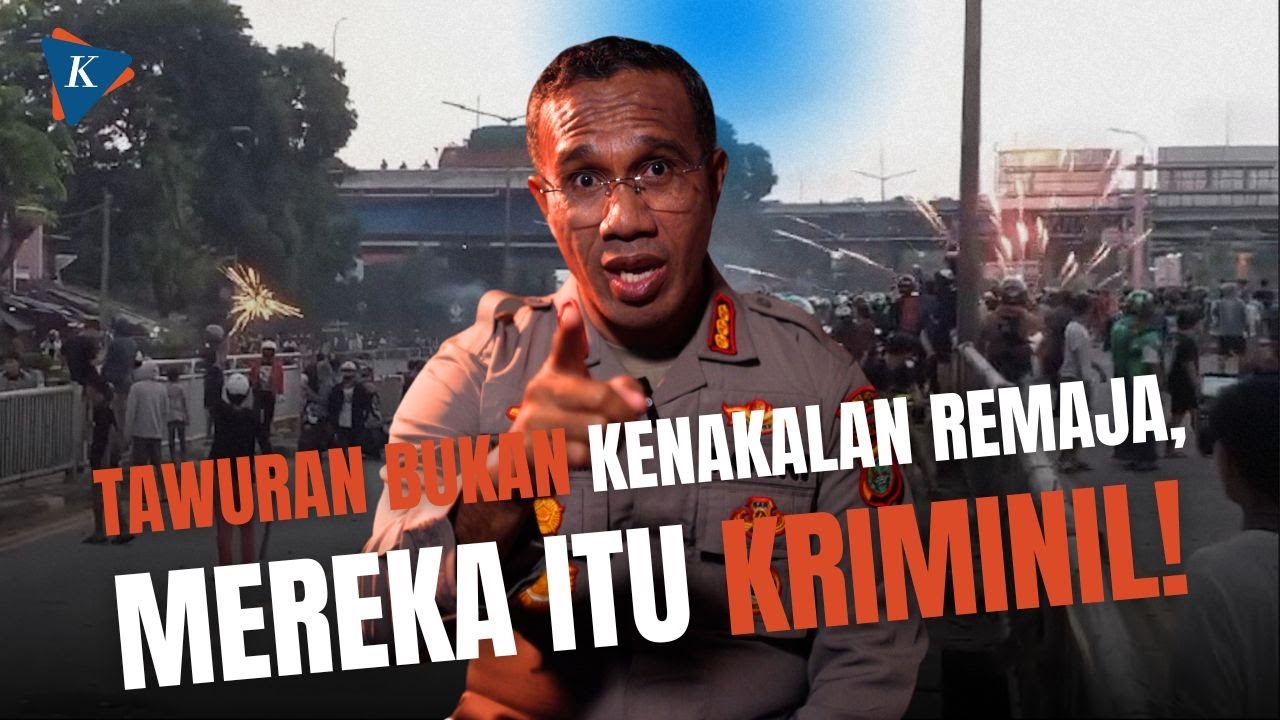Researcher Lays Out Ways To Stop Urban Violence | Morning Joe | MSNBC
Summary
TLDRThe discussion focuses on the persistent issue of urban violence in major U.S. cities, highlighting rising homicide rates in Philadelphia, Baltimore, and Chicago. Thomas App, a senior fellow at the Harvard Kennedy School, emphasizes three key principles for addressing violence: focusing on high-risk individuals, balancing enforcement with prevention, and ensuring fairness in law enforcement. He discusses the influence of the Black Lives Matter movement on public confidence in the justice system and suggests that while various factors contribute to crime trends, targeted strategies can effectively reduce violence. His book, 'Bleeding Out,' outlines a comprehensive approach to achieving peace in urban environments.
Takeaways
- 😀 Understanding the importance of collaboration in achieving common goals.
- 😀 Emphasizing the role of effective communication in team dynamics.
- 😀 Highlighting the significance of adaptability in a changing work environment.
- 😀 Recognizing the value of diverse perspectives in problem-solving.
- 😀 Encouraging continuous learning and skill development among team members.
- 😀 Acknowledging the impact of leadership on team motivation and productivity.
- 😀 Discussing strategies for conflict resolution within teams.
- 😀 Promoting a culture of feedback to foster improvement and growth.
- 😀 Exploring the benefits of setting clear objectives and expectations.
- 😀 Stressing the need for maintaining a positive and inclusive work atmosphere.
Q & A
What is the current trend in homicide rates in major U.S. cities?
-Homicide rates are continuing to climb in some of the largest cities in the U.S., with Philadelphia reporting a 8% increase in homicides compared to last year, Baltimore with 159 homicides so far this year, and Chicago having more than 240 homicides in 2019.
What are the three fundamental principles recommended for addressing urban violence?
-The three fundamental principles are: 1) Focus on the people and places driving the majority of violence, 2) Balance enforcement with prevention and treatment, and 3) Ensure fairness and perceived legitimacy of law enforcement.
How does New York City serve as a model for reducing urban violence?
-New York City is noted for implementing strategies that align with the recommended principles, resulting in a potential new low in homicide rates since the 1950s.
What challenge exists when discussing urban violence in relation to race?
-There is a risk of urban violence discussions becoming racial dog whistles that lead to moral panic and punitive measures rather than addressing the issues substantively.
What does the research indicate about the concentration of urban violence?
-Research shows that urban violence is highly concentrated among a small number of individuals and specific locations, meaning that the majority of people in these areas are not violent.
What impact has the Black Lives Matter movement had on perceptions of urban violence?
-The movement has highlighted a crisis of confidence in the American criminal justice system, which, when perceived as illegitimate, can trigger an increase in violence as communities are less likely to engage with the system.
How does Thomas App differentiate between predictive policing and programs like stop-and-frisk?
-Thomas App avoids using the term 'predictive policing' due to its negative connotations and instead discusses 'hot spots policing,' which focuses on specific areas and individuals while aiming to avoid broad punitive measures.
What factors have contributed to the recent decline in violent crime rates?
-Various factors have contributed to the decline in violent crime, including changing drug markets, economic improvements, and increased incarceration rates, though no single factor is solely responsible.
What does Thomas App suggest is crucial for effectively addressing urban violence?
-It is crucial to implement targeted enforcement measures focused on the most dangerous individuals while avoiding broad, zero-tolerance approaches that do not differentiate between those at risk and those who are not.
What is the title of Thomas App's new book, and what is its main focus?
-The title of Thomas App's book is 'Bleeding Out: The Devastating Consequences of Urban Violence and a Bold New Plan for Peace in the Streets,' which argues that urban violence is solvable and offers a comprehensive plan for addressing it.
Outlines

Cette section est réservée aux utilisateurs payants. Améliorez votre compte pour accéder à cette section.
Améliorer maintenantMindmap

Cette section est réservée aux utilisateurs payants. Améliorez votre compte pour accéder à cette section.
Améliorer maintenantKeywords

Cette section est réservée aux utilisateurs payants. Améliorez votre compte pour accéder à cette section.
Améliorer maintenantHighlights

Cette section est réservée aux utilisateurs payants. Améliorez votre compte pour accéder à cette section.
Améliorer maintenantTranscripts

Cette section est réservée aux utilisateurs payants. Améliorez votre compte pour accéder à cette section.
Améliorer maintenantVoir Plus de Vidéos Connexes

EAD 4 Violência urbana

Berani Berbicara, Berani Lapor, dan Berani Menegur. Ayo Berantas Kekerasan Seksual! | GOOD TALK

Meredam Bara di Timur Jakarta | MEGAPOLITAN

2015 DSSG Data Fest: Team Infonavit

HD. Cap 3. PROVINCIA DE BUENOS AIRES - "Elemento Vital. El agua en el siglo XXI"

patofisiologi penyakit Diare
5.0 / 5 (0 votes)
